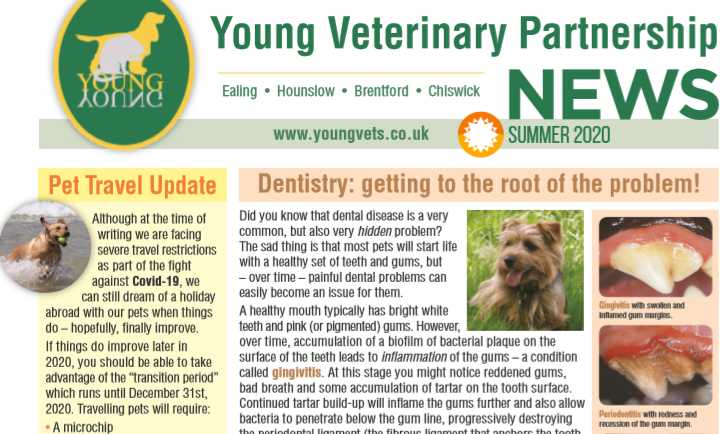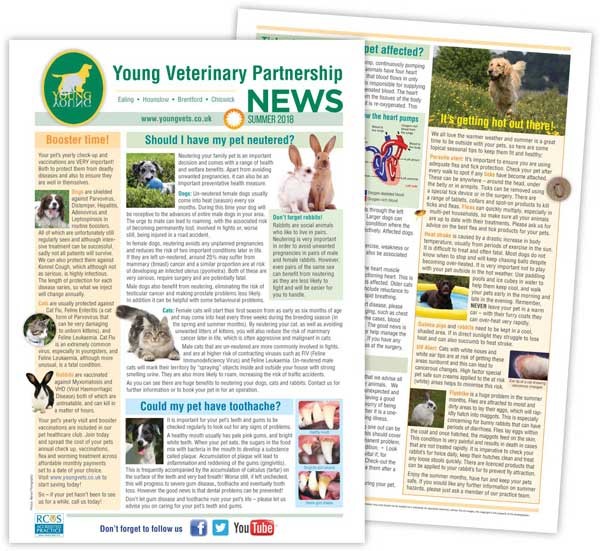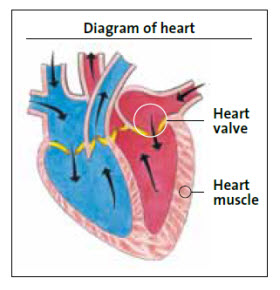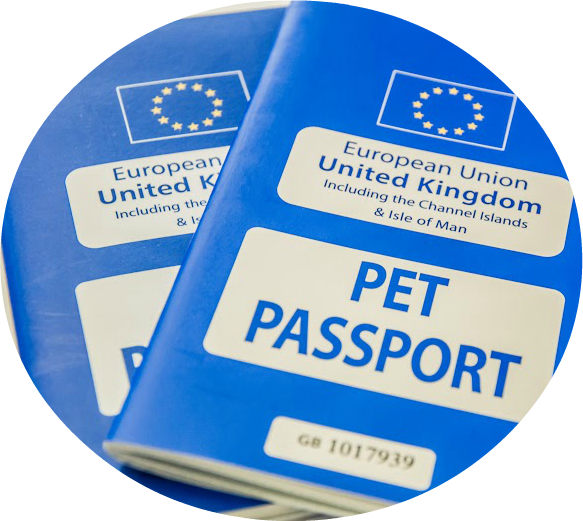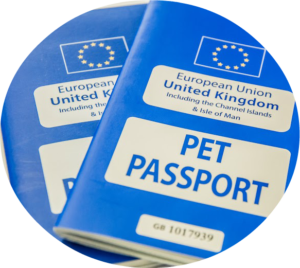Beat The Heat This Summer 2020
Beat The Heat This Summer 2020
The summer heat is a huge problem for many pets and it is essential to ensure free access to cool water at all times. Dogs can easily overheat and become dangerously unwell, our Summer News explains the signs of heat stroke that all dog owners should be aware of to keep their pets safe. Not forgetting rabbits and guinea pigs always ensure that they have access to plenty of shade, plus cool water – preferably in a bowl.

Age is not a disease in itself,
but it brings with it some conditions that owners of senior kitties need to be aware of. Thanks to improved nutrition and veterinary care, cats are living longer, healthier lives. Our Summer News discusses some of the most common conditions affecting older cats and the signs to watch out for.

A healthy mouth,
typically has bright white teeth and pink (or pigmented gums). However over time, plaque can accumulate on the tooth surface and start to cause bad breath and painful dental disease. Our Summer News explains the stages of dental disease to watch out for and how to manage them.

We hope you enjoy reading our Beat The Heat Summer News 2020, if you have a query on any of articles mentioned please do not hesitate to contact our friendly team for more advice.

